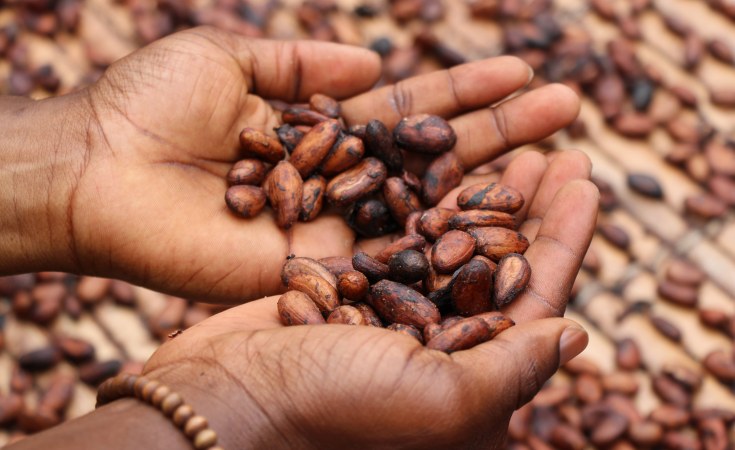Belgian researchers report that 45 percent of deforestation in Côte d'Ivoire in the past decade is the result of unregulated cocoa production.
Researchers from the Belgian university of Louvain found that 45 percent of the destruction of forest in Côte d'Ivoire between 2000 and 2019 was the result of unregulated cocoa production. Tropical forest covering 2.5 million hectares was destroyed for cocoa plantations.
Côte d'Ivoire is the world's largest producer of cocoa. One million small farmers each year produce over 2 million tonnes of cocoa beans, 40 percent of the world's cocoa harvest, according to the Food and Agriculture Organisation.
A study carried out by the local Waters and forest ministry, between 2019 and 2021, shows that Côte d'Ivoire has lost 80 percent of its forest cover over the past 60 years.
The Louvain study, Transparency, traceability and deforestation in the Ivorian cocoa supply chain, published in Environmental Research Letters early this year, blames untraced sourcing for 60 per cent of this deforestation.
Under EU regulations, all products imported into the bloc are supposed to traceable back to the original producer.
"We identified 838,000 hectares of deforestation associated with European Union imports, 56 percent of this arising through untraced sourcing," the report said.
European Union countries imported 60 percent of Ivorian cocoa beans in 2019.
A big part of deforestation in Côte d'Ivoire and Ghana is due to cocoa, the main ingredient in your chocolate. Watch this video and learn how your chocolate can play its part in saving and restoring West Africa's forests and stopping climate change. https://t.co/j87fGBxTEp-- WorldCocoaFoundation (@WorldCocoa) April 10, 2023
The researchers found that in 2019, only 44 percent of cocoa exports from Côte d'Ivoire could be traced back to a specific cooperative and department. They deplore the lack of traceability to farms.
According to the research team, the majority of cocoa remains untraced, being obtained either indirectly from local intermediaries by major traders or exported without information about sources.
Government efforts
The government of Côte d'Ivoire implemented the Cocoa and Forests Initiative (CFI), along with the other major cocoa producers, Ghana and Colombia. It was launched in 2017 by the now King Charles III of the United Kingdom.
It has already been signed by 35 chocolate and cocoa companies. They commit to"working together to end deforestation and forest degradation in the cocoa supply chain".
But the researchers suggest that the initiative is not working.
"The information that companies have and disclose about their cocoa supply chains is disparate and it is challenging to assess where companies source their cocoa from."
The researchers used various tools to carry out their work. One of them is the Transparency for Sustainable Economies (Trase) initiative. It provides a supply mapping approach to better understand the trade and financing of deforestation-linked commodities.
The study identifies gaps within the industry making it difficult to map out a clear traceability.
The researchers recommend strongly enforced land-use policies and full farm-level traceability, as required by the EU due-diligence rules for companies whereby they will have to prove that their products have not conbtributed to deforestation.


